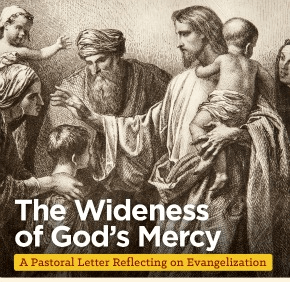Catholic News Service
Also see:
Presenting facts is key to parish and school planning, Bishop Rozanski says
During Lent, Dundalk parish helps believers live the works of mercy
Copyright ©2016 Catholic News Service/U.S. Conference of Catholic Bishops.


